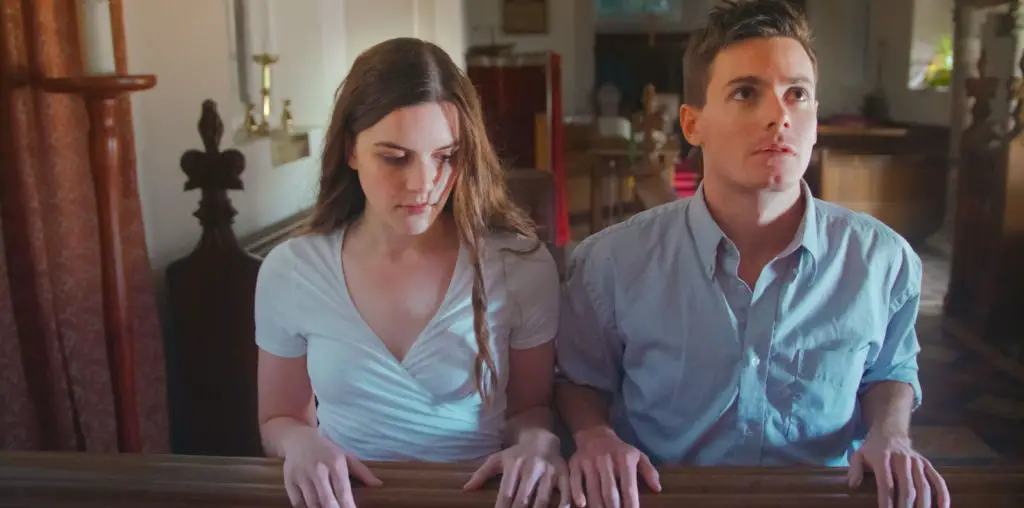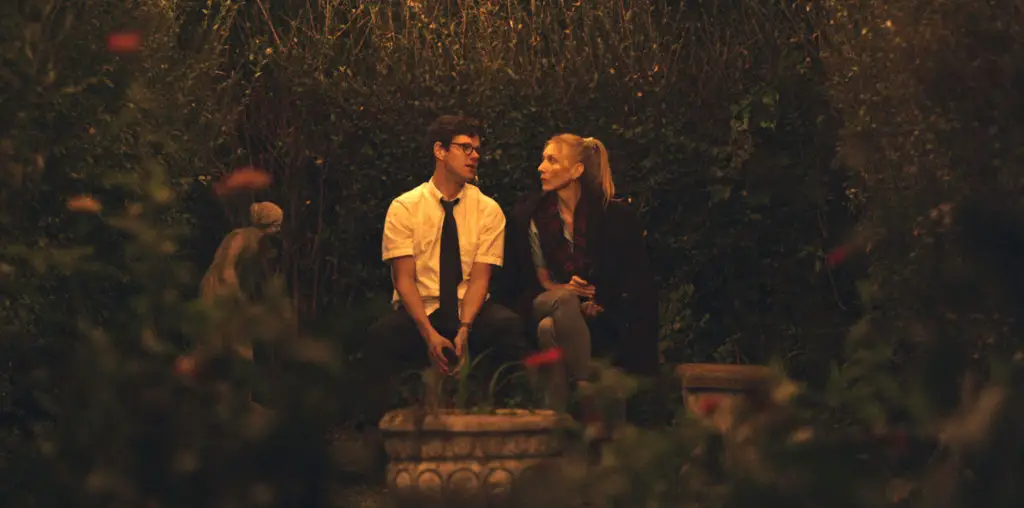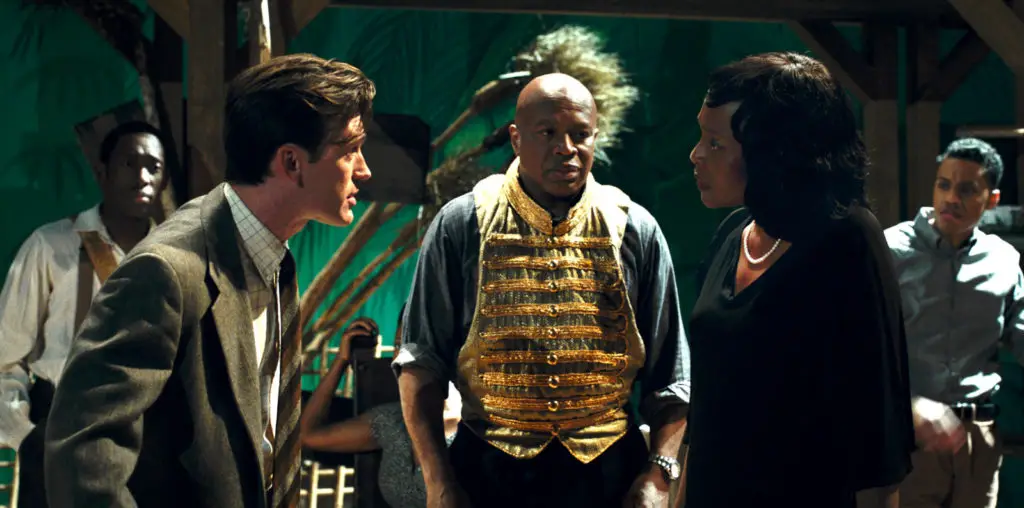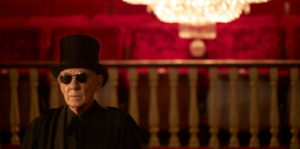
When Roman Polanski made Macbeth for Hugh Hefner, he hired the theater critic Kenneth Tynan as a consultant. Tynan stressed the importance of a young lead because the lack of good parts in the play meant it was usually only staged by wealthy, older actors. These veterans could indulge themselves in the starring role, often at the expense of its drama about a young and terribly ambitious man. (Interestingly, Tynan also asserted that the hefty action often injured these older actors, mothballing many productions and thus giving birth to the play’s legend as an albatross.)
So what does that say about Sir Ian McKellen in director Sean Mathias’s Hamlet, just fifteen years shy of his centenary? A play about a young man again, this time pretending to be mad. Is he mad? McKellen last played Hamlet 53 years ago, when he was the same age as The Dane at the play’s close. That was 1971! A Clockwork Orange was still playing on general release. So was Polanski’s Macbeth, come to that.
The film opens with a title: “In March 2020 a time (sic) of disruption. Theatres have closed indefinitely across the globe.” This is clumsy but nicely meta, explaining the filming being restricted to the various rooms of a theater. This is a lockdown movie, then. A huddled stab at a beloved text as the world stopped moving.
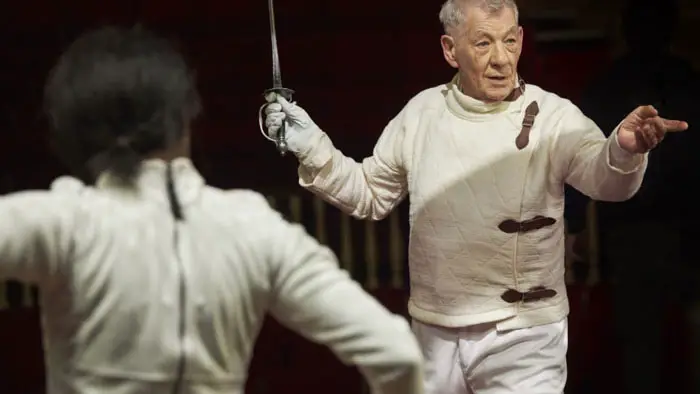
“…Prince Hamlet’s father has died, and he suspects his uncle…”
So, to the plot: Prince Hamlet’s father has died, and he suspects his uncle, Claudius (Jonathan Hyde), as murderer and usurper, both to the crown and the bed of his mother, Gertrude (Jenny Seagrove), still virtually warm from his father’s body. He sets out to prove this, using the cover of madness or an “antic disposition” to put his foe off his guard.
There are endless great choices from (late) producer Bill Kenwright and Mathias throughout Hamlet. Using every inch of Windsor’s Theatre Royal as Elsinore Castle works well throughout. When Hamlet addresses the players mid-way through, it is our first sight of the stage itself, SAFETY CURTAIN firmly down, its purpose screaming behind the cast in giant red letters. As Hamlet mocks Claudius over Polonius’s death, he does so as a venomous heap on the floor next to a urinal. The battlements are suitably eerie despite being a metal fire escape.
This ingenuity stretches to the props and costumes, such as Francesca Annis’s simple fencing mask, which screams of hasty improvisation but is still perfectly sinister for the part of the Ghost. The production is exemplary for the deftness with which it works within constraints, finding interesting ways to turn obstacles into technical devices that refine and charge the text. Some decisions don’t feel too apt, however. Polonius’s son Laertes is played by actress Emmanuella Cole, which suggests pandering as nothing of her perfectly adequate performance validates an otherwise confusing casting choice. Alis Wyn Davies plays Ophelia with a winning, sensuous, hippy-dippy vagueness. But equipping her with a guitar and having her sing feels a little awkward. This is to take nothing from either performance, though.
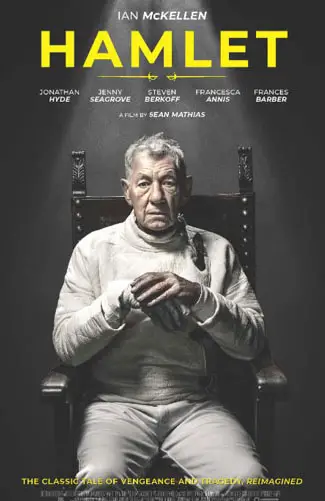
"…a fine entry point into the text."
